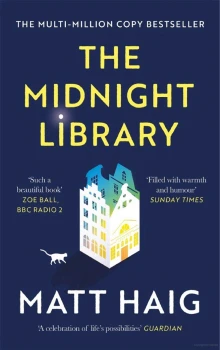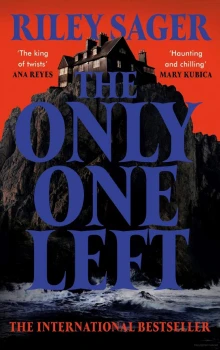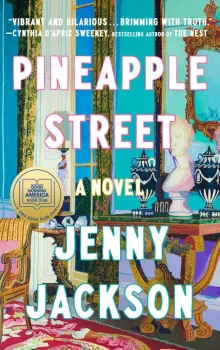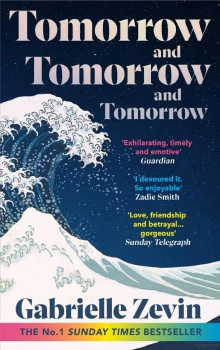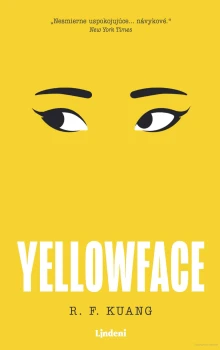14
A low red sun skims the freeway grass in the distance. Sony and Hai are riding the push scooter in the McDonald’s parking lot, where the family has stopped after visiting the Stonewall Jackson Museum. The summer air is warm and sticky in the breeze made by their movement. Hai stands at the rear, while his cousin is tucked between his arms in front as they rattle over the pavement. Somewhere behind them, the women are laughing. It will only occur to Hai, years later, when his grandmother is long dead, how easy it was for them to laugh, that it was almost a superpower, to crack up with faces so open they seemed on the verge of falling apart, and to do so without a touch of shame in a parking lot on the side of a highway in August with only a half gallon of gas in the Toyota, their bellies filled with french fries and chicken tenders and Dr Pepper, which they mistook for Coca-Cola but drank anyway, grimacing, the taste too close to a particular brand of cough syrup from the country they fled.
This laughter, clipped by traffic, buoys him, and Hai pushes harder. “Look, it’s a spaceship! We’re on a spaceship, Sony!” Hai makes beeping sounds into Sony’s ear as the wind whizzes through the holes left from their newly gone baby teeth.
Sony shakes his head, eyes shut. “Don’t say that. It’s not a real spaceship. It’s just a scooter. Don’t make stuff up for the heck of it.”
“I thought you liked space stuff. Or is it just the Civil War stuff now?” Hai stops pushing and lets the momentum roll them forward.
“I like NASA—the real kind, not make-believe like Star Trek. My mom likes make-believe, but I hate it. It makes things wobbly.”
The scooter crawls to a stop. Sony turns around and Hai gets a good look at his cousin, the mole under his eye only an errant speck of black pepper. Sony clutches the Stonewall Jackson coloring book his mother bought him back at the gift shop. The book is big as his torso, which makes him look comically tiny, like he’s wearing a sandwich board advertising Confederate generals. In three years, he’ll be a head taller than Hai, but now he still looks the part of the little cousin. “Using your imagination makes you dizzy?” Hai says. “That’s stupid.”
“I can imagine things into other things—just not into fake stuff. Lying makes me dizzy.”
“What about this Stonewall guy.” Hai flicks at the book. “You really think he danced the polka every night after dinner like that white lady said?”
“She wouldn’t lie. She’s a docent.”
Hai looks back at the women, their floral shirts merged into a singular mass of deep gold in the oncoming dusk. “You’d get bored of dancing anything after two minutes. The lady isn’t decent at all. She’s full of shit.”
“Docent. Plus, my dad even said so. If you lie too much, everything around you starts to look like you’re drunk, like Mr. Phuong outside of A Dong Market, always talking to invisible elves. My dad knows stuff like that, classified stuff. He’s the Stonewall Jackson of the South Vietnamese Army.”
“Grandma said he was a janitor on a military base.” Hai lets the scooter drop to the ground. Aunt Kim had bought it for him when they stopped in New York City’s Chinatown two days ago. It’s a knockoff, not the name-brand Razor scooter—which is all the hype—but it still cost eighty dollars. Ma had scolded him for accepting such a decadent gift. “Let the boy have something nice,” Aunt Kim said outside the stall. “I won’t be seeing him for a long time anyway.” Hai watched Ma bite her lip and look away as the crowd on Canal Street swallowed them up, and that was that.
“My dad was a corporal and he even has a wound in his wrist from the Vietcong to prove it.” Sony’s face is scrunched up, his chin lowered.
“Let me see this thing.” Hai grabs the coloring book and sits on the curb, flipping through it. Sony huddles beside him, relieved to move on to what he loves. The pages show Jackson in various pastoral settings, often with horses. The images are black-and-white, as expected. However, strangely, each figure’s skin tone was already shaded in with a peach-like pink, making the faces look like they’re peeking through the monochrome outlines, alive behind the paper.
“At least they give you a head start with the skin,” Hai says.
“Faces are hard to color, that’s why. Lots of tiny parts, like eyes.”
Hai stops on a page showing Jackson sitting in his parlor smoking a pipe and reading a book while his wife, Elinor, crochets nearby at the fireplace. He hovers a moment, the shadow of his fingers darkening Elinor’s smile. Strange new thoughts have been coming to him lately, mostly at night, right after the lights go out and his mother’s TV hums with HGTV infomercials in the next room. In the dark his mind would snag on the features of some boy in his seventh-grade class: Chris, Nate, Tyler, Armando, Jason. But it wasn’t exactly the faces themselves, though each had its distinct charm, a curious openness common to twelve-year-olds: Hai saw no beauty or prettiness in them, but rather a forceful, brooding kinship to an amorphous boyness, that realm he was supposed to possess but was still partially hidden from him. Though it had no source he could name, there was something beyond reach, a gleaming heat, the way one knows, at times, where the moon hangs in the sky on an overcast night. Or a word existing before its definition—and like all things without meaning, it made no sense. It shook him with a hushed but stubborn haunting, his lids fluttering as their faces came closer, and he’d pull his blanket over his head to cover from the chill he made of himself.
“Wouldn’t it be funny if it was another man sitting there knitting,” Hai says with a laugh, his eyes trained on Sony, who’s studying the couple.
Sony looks up. “That wouldn’t make any sense.” Then considers it, squinting at the image. “No,” he shakes his head at last, decisive. “That would be weird. First off, they would most likely be fellow officers or instructors at the academy. Which meant Elinor would have to leave the room while they talked. That’s what the docent said. She also…” As Sony drones on, Hai picks up a pebble and gently places it over Jackson’s face, like a piece on a checkers board, then does the same with Elinor.
That’s when they laugh again. Hai turns to see the women, mouths wide open with shut eyes, as they playfully slap each other’s legs, holding their sides under a parking lot lamp that has just flickered on. Then he looks down at the two pink faces, each one covered in stone, and lets the women’s voices wash over him.
Hai had forgotten to wash up before clocking out and was now wiping his greasy hands on his HomeMarket apron as he stared at the poster across the waiting room. It showed a child standing on a shoreline caught under a tsunami wave made entirely out of silhouette, as if the wave itself was cut out. The wave’s shadow fell on the child, who was merely an outline filled with light. Below the scene was printed, in block letters, the command Don’t let your child be swallowed by depression. Underneath this was the name of a pill, Luminkind, that was to rescue your kid from this natural disaster of the mind. Hai wondered if he was too old to take something made for children. At what point does childhood sadness become adult sadness anyway? Does the tsunami get larger as the figure grows? Was his wave already twice the size of the one in the poster?
As he pondered this the door flung open, revealing a man dressed in a grey suit with no tie. He wheezed as he ambled toward Hai, his enormous face resembling punched dough. He had the wasted look of a public defender but was actually a psychiatrist, and this was his office. “Hey, you the father?” he said, then clocked Hai’s youth. “Or brother or whatever?”
“I’m just—”
“Here.” He turned to a nearby rack of pamphlets, arranged like rest stop brochures, each one relating to various mental illnesses. He picked two out, paused to think, then put one back. “Take this and read it and discuss it with him, okay? You guys have a long road ahead as a family. But this kinda thing happens. It’s normal, okay? Super normal. Mark will follow up with booking his sessions. Any questions?” He was in his early thirties but had the voice of an old man, thick with spit. He was the only psychiatrist who both took Sony’s state insurance and was in biking distance. “Now, the antipsychotics I gave him are gonna make him nauseous for the first two weeks, so make sure he takes ’em with plenty of food first, okay? Don’t let the term scare ya. Sony’s not crazy. He’s a normal guy. Got it? Maybe a little extra normal.” He tried to add a laugh but abandoned it and just coughed into his arm.
Hai nodded. “Thanks.”
The man walked back inside. “Mark!” he shouted to a secretary somewhere in the other room. “Make him another appointment in a month, then shut it down. I’m done for the day. You wanna hit up Hairy Harry’s?”
After some murmuring behind the door, Sony came out, his face unsmiling but placid. He was still wearing his apron and black cap. It almost made Hai laugh to see them, two fast-food workers in a shrink’s office, like a New Yorker cartoon caption competition.
“So? You officially loony or what?” Hai said.
Sony shrugged, then glanced down at the pamphlet in Hai’s hand. Hai saw the words for the first time: Your Neuro-atypical Teen: The Next Five Years.
Hai held it up for Sony to see, but he was staring at the ground, the bag of corn bread crinkling in his hand. Hai scanned the room, almost hoping there would be another poster that might instruct, through metaphor, what this meant, how big the wave his cousin was standing under. But the lights just hummed and Mark and the doctor could be heard shuffling toward the door, putting on their coats, so Hai just gave him a hug. Sony flinched and stiffened at first, then relented. They stayed like that a bit, then Sony, through an affected cartoon voice, the one he used when nervous, said, “Ouch. You’re crushing me!”
“Good luck, guys. And stay safe!” the doctor called as they all walked out, the way you’d call to people as they got into their cars after a party. It was only five p.m. but the parking lot was pitch and shone with a thin layer of ice. Hai retrieved the bike from a nearby shrub and walked it over to the road.
“You didn’t tell me this was why they put you in the group home,” Hai said, climbing on. “I thought this was a therapist.”
“It is.”
“I mean for, like, sadness or whatever.”
“It is.”
Hai shoved the brochure into his jacket. “Never mind. It’s okay, okay? Everything’s normal.”
“I have to take these,” Sony said, shaking a bottle with the two sample pills the doctor had given him. “I’m kinda scared.”
“I know.” Hai felt his voice soften. “But you’ll make it, I promise. They’re doctors. They know what they’re doing. They went to real college.” It was hard for him to say what he felt were lies.
Sony shrugged.
Hai took a piece of corn bread from Sony’s bag and broke it in half. “Want one?”
Sony took the piece and climbed onto the back pegs.
“You on tight?” Hai asked, chewing as he pedaled.
They rode past the houses with square-lit windows strung on both sides of the road and said nothing to each other for a while, only their breaths wafting up under the cones of light from the occasional lamppost. Then Hai heard himself saying it. And he said it again, quietly at first, then louder as Sony’s grip tightened on his shoulder. And Sony joined him as they said it together, speeding down the hill, back to East Gladness, its water tower belted with a string of colored Christmas lights in the foggy distance. “This is not a spaceship,” they chanted. “This is not a spaceship! This is not a spaceship!” Until their voices broke off and they were swallowed by the oncoming valley and all was dark save for the faint blue etches of ice, crystal veins creeping across the road in their wake.

